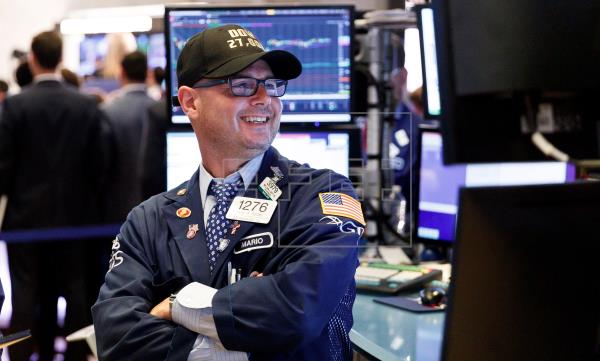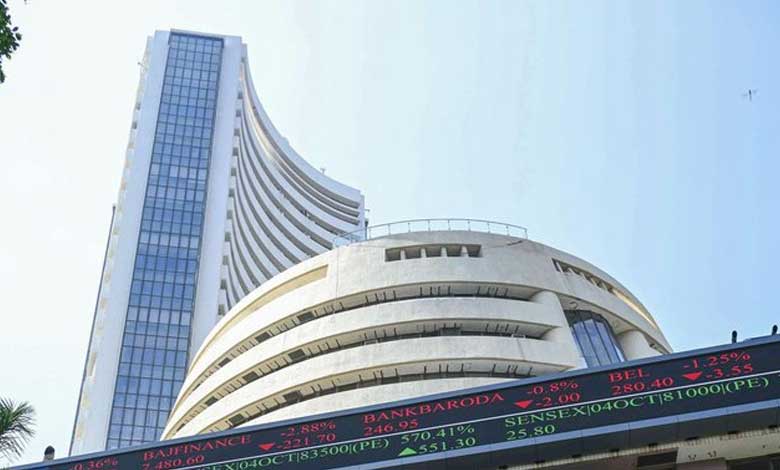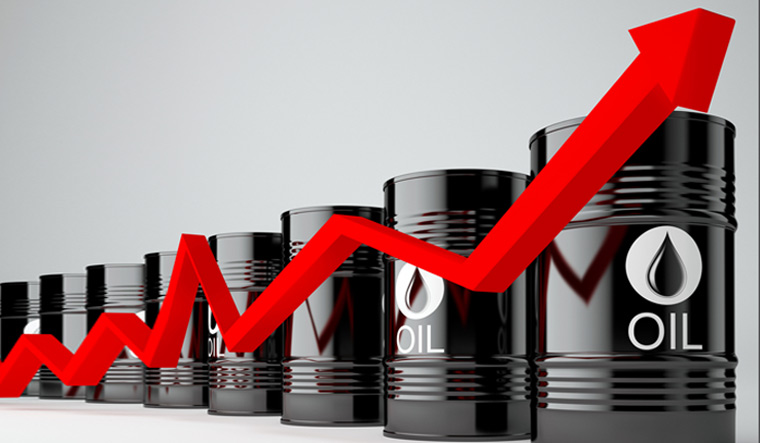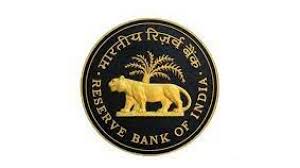US stock market surges to record highs
Fri 12 Jul 2019, 13:23:15

New York: The New York Stock Exchange’s key indexes set new record highs on Thursday, fueled by expectations that the US Federal Reserve will cut interest rates.
The Dow Jones Industrial Average gained 227.88 points, or 0.85 per cent, to close at 27,088.08 points, while the S&P 500 advanced 6.84 points, or 0.23 per cent, to 2,999.91, also a record close, the Efe news agency reported.
It was the first time the Dow crossed the 27,000-point threshold and the second consecutive session where the S&P burst through the 3,000-point barrier before retreating at the closing bell.
Thursday’s only negative note was sounded by the Nasdaq index, comprising mainly technology stocks, which fell 6.49 points, or 0.08 per cent, to 8,196.04 points.
The strongest sectors were industry, up 0.71 per cent, and finance, with a gain of 0.60 per cent.
Shares of real estate and property firms declined 1.21 per cent.
Traders were upbeat at the opening bell based on comments Fed Chairman Jerome Powell made the previous day in testimony to the US House of Representatives Committee on Financial Services.
Market analysts interpreted Powell’s
remarks as a clear sign that the Federal Reserve may cut its benchmark federal-funds rate at the July 30-31 meeting of the Federal Open Market Committee, the central bank’s policy-making body.
remarks as a clear sign that the Federal Reserve may cut its benchmark federal-funds rate at the July 30-31 meeting of the Federal Open Market Committee, the central bank’s policy-making body.
The Fed chair expressed the same sentiments in an appearance Thursday before a Senate committee.
Though encouraged by the signals from the Federal Reserve, investors remained concerned about relations between the US and China in light of a tweet from President Donald Trump expressing disappointment with Beijing’s failure to boost purchases from American farmers in line with the trade truce he agreed on with Chinese President Xi Jinping during last month’s G20 summit.
The Dow’s top performing shares on Thursday included UnitedHealth, up 5.53 per cent; Goldman Sachs, 2.61 per cent; and 3M, which gained 2.02 per cent.
Drug-maker Merck was the session’s biggest loser, falling 4.50 per cent.
In commodities trading, the US benchmark crude, West Texas Intermediate, dropped 0.38 percent to $60.20 barrel after the publication of an analysis by the Organisation of Petroleum Exporting Countries predicting lower demand for oil in 2020.
No Comments For This Post, Be first to write a Comment.
Most viewed from Business
AIMIM News
Asaduddin Owaisi questions PM Modi's China policy
Jan 08, 2025
Owaisi slams UP over police post near Sambhal mosque
Dec 31, 2024
Owaisi hails SC order on Places of Worship Act
Dec 13, 2024
AAP Corporator Tahir Hussain joins AIMIM party
Dec 11, 2024
Latest Urdu News
Most Viewed
May 26, 2020
Which political party will win the Delhi Assembly polls to be held on Feb 5?
Latest Videos View All
Like Us
Home
About Us
Advertise With Us
All Polls
Epaper Archives
Privacy Policy
Contact Us
Download Etemaad App
© 2025 Etemaad Daily News, All Rights Reserved.





























